The Eiffel Tower — or la Tour Eiffel — stands as a testament to the charm and innovative spirit of Paris. This iconic structure, built for the 1889 World’s Fair, wasn’t just meant to be a dazzling centerpiece, but also a tribute to the centennial of the French Revolution and a showcase of France’s industrial might.
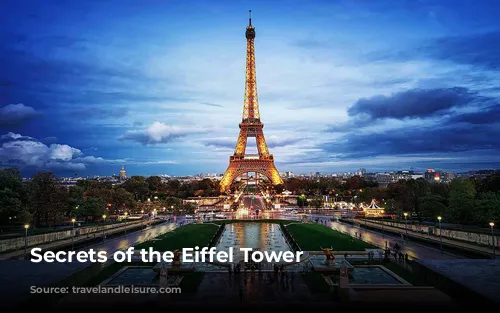
A Tower Built with Precision and Speed
This towering monument was completed in an astounding two years, two months, and five days, a feat of engineering prowess. Gustave Eiffel’s company used an impressive 7,300 tons of iron and 2.5 million rivets to construct the Eiffel Tower. The final product stood proudly over the Champs de Mars, drawing over two million visitors during the fair.

Beyond the Eye: Unveiling Hidden Gems
Despite being a globally recognized symbol, the Eiffel Tower has a few secrets tucked away. While over 300 million people have marveled at its grandeur, La Dame de Fer continues to hold surprises for those who delve deeper.
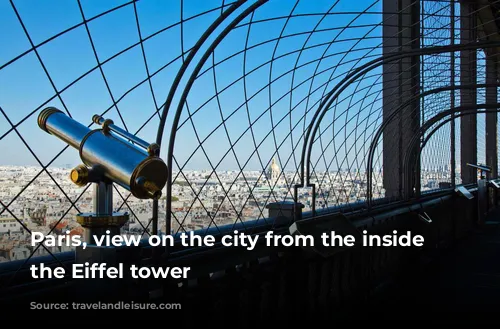
A Design That Faced Opposition
Although the Eiffel Tower’s silhouette is replicated worldwide, its design was not universally loved. A group of prominent artists, including Guy de Maupassant, Alexandre Dumas, and others, wrote a letter published in the newspaper Le Temps protesting the tower’s construction. They saw it as a “gigantic black factory chimney,” a “barbarous mass” that would overshadow Paris’s architectural heritage.
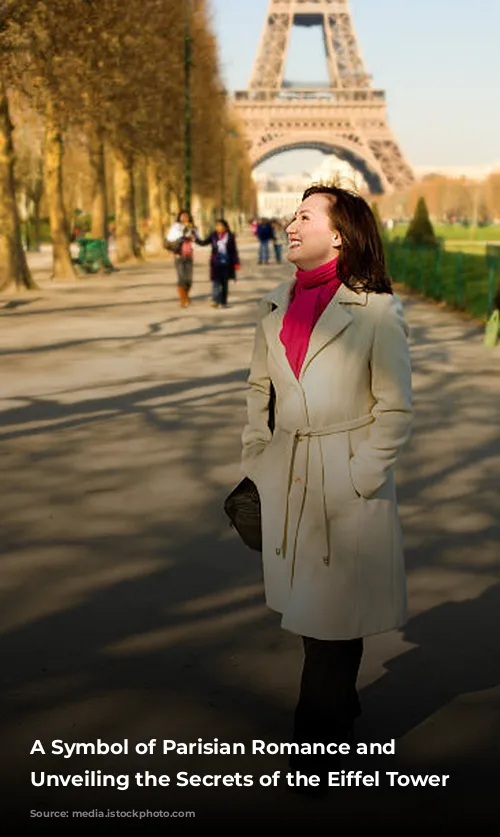
Defying the Critics and Standing the Test of Time
Despite the protests, the Eiffel Tower defied its detractors. It’s not only survived, but thrived. It remains one of the most visited monuments in the world, attracting nearly seven million visitors annually.
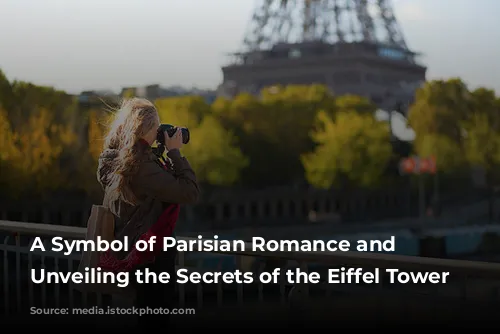
A Private Apartment at the Pinnacle
Gustave Eiffel, the visionary behind the tower, reserved the uppermost level for himself. In his private apartment, he entertained renowned guests like Thomas Edison. Today, this space has been transformed into a recreation of his office, complete with wax figures of Eiffel, his daughter, and Edison, open to the public.
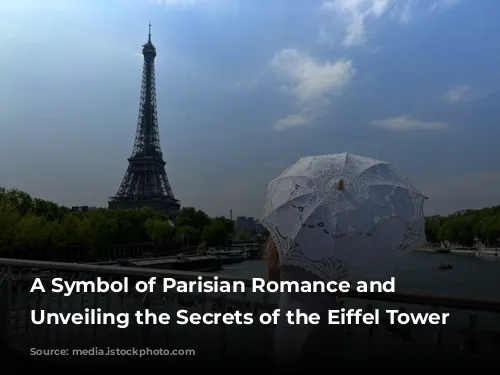
The Architects Behind the Iron Lady
While the Eiffel Tower bears his name, it was actually Maurice Koechlin and Emile Nouguier, two engineers working for his company, who conceived the structure’s design. They enlisted French architect Stephen Sauvestre to soften its industrial look, addressing public concerns. Their design triumphed over 100 other entries in a competition to choose the centerpiece for the 1889 World’s Fair.

A Temporary Landmark?
Originally, the Eiffel Tower was meant to be a temporary structure, destined for demolition after 20 years. However, Eiffel cleverly incorporated a radio antenna and wireless telegraph transmitter into its design. In 1910, he proved radio’s utility to the French government, earning a 70-year extension on his lease. By 1980, the Eiffel Tower had become a permanent fixture in the Parisian landscape, an emblem of France’s enduring spirit.

A Narrow Escape During World War II
During World War II, the Eiffel Tower faced a more immediate threat. As the Nazis lost their grip on Paris, Adolf Hitler ordered his generals to destroy the city, including the tower. Plans were drawn up to mine the tower with explosives. Fortunately, Allied troops arrived in time to prevent the destruction. While the tower survived the war, it did sustain damage from subsequent air raids.
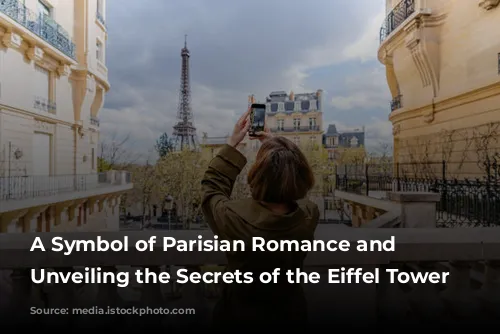
A Legacy of Innovation and Collaboration
Eiffel’s genius wasn’t limited to the Eiffel Tower. He also played a key role in the creation of the Statue of Liberty. While Frédéric-Auguste Bartholdi designed the iconic statue, he sought guidance from his mentor, Eugène Viollet-le-Duc, for the internal framework. After Viollet-le-Duc’s death, Bartholdi turned to Eiffel and Koechlin, who had already proven their iron expertise with Lady Liberty.
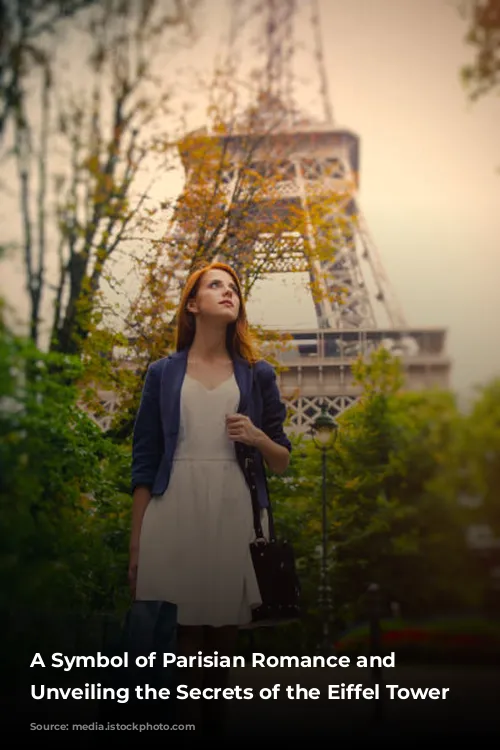
A Tower with Many Lives
The Eiffel Tower has served as more than just a monument. For a brief period, it housed the French newspaper Le Figaro and a post office, a radio station, and a wooden theater. It even had a scientific laboratory on its third floor, where Eiffel conducted physics and aerodynamics studies, even building a wind tunnel at the base. He also allowed other scientists to use the laboratory for their experiments.

A Tower that Moves
This massive iron structure isn’t completely static. It sways in the wind, and the heat of the sun causes the iron to expand, making it grow by a few centimeters in the summer. It also leans slightly away from the sun, as the side facing the direct light heats up faster than the other sides.
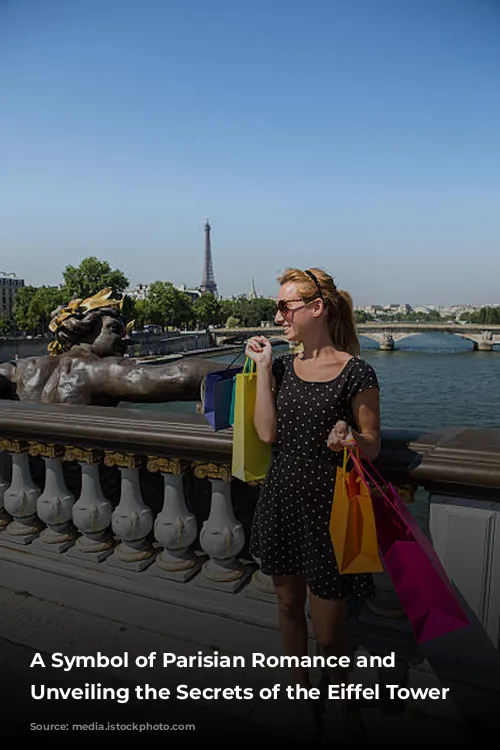
A Tribute to Scientific Genius
A testament to the enduring legacy of 19th-century scientists and engineers, the Eiffel Tower features the names of 72 prominent figures engraved on its first floor. These tributes, originally painted over in the early 20th century, were restored in the late 1980s, ensuring their visibility for generations to come.

Preserving a Parisian Icon
Maintaining the Eiffel Tower’s pristine appearance requires meticulous attention. A team of 50 specially trained painters regularly inspects the structure for corrosion, strips away worn sections, applies layers of anti-rust primer, and coats the tower in 60 tons of paint, all by hand. This painstaking process can take anywhere from 18 months to three years, depending on weather conditions.

A Symphony of Lights
The Eiffel Tower’s first light show debuted at the 1925 International Exhibition of Modern Decorative and Industrial Arts. Andre Citröen, the automaker, financed a spectacular display featuring a shower of stars, Zodiac symbols, comets, and, naturally, his car brand’s name.
Sixty years later, a different show, featuring 336 yellow-orange spotlights, illuminated the night sky. The now-famous sparkling light show, with its 20,000 bulbs, first appeared on New Year’s Eve 1999. Today, this enchanting display shines every night for the first five minutes of each hour starting at 8 p.m., culminating in a 10-minute grand finale at 1 a.m.
A Photo Opportunity with a Legal Twist
While the Eiffel Tower itself is in the public domain, its illumination is protected by copyright. This restriction applies only to professional photography. Don’t worry about breaking the law if you’re capturing personal photos of the tower and its dazzling nighttime light show.
A Toast to Eiffel’s Legacy
Reward your climb to the top of the Eiffel Tower with a celebratory glass of bubbly from the Champagne Bar. The sparkling views from the top are best enjoyed with a bit of celebratory sparkle.
Beyond the Tower: Eiffel’s Lasting Impact
Eiffel’s contributions extended beyond the iconic Parisian tower. He also designed several major bridges, railways, and viaducts across Europe, including the Maria Pia bridge in Porto, Portugal, the Nyugati (Western) Railway Station in Budapest, Hungary, and the Côte d’Azur Observatory’s dome in Nice, France.
A Tower That Once Touched the Sky
In 1889, the Eiffel Tower stood as the tallest building in the world, reaching 312 meters (1,024 feet). For 40 years, it reigned supreme until the Chrysler Building in New York City surpassed its height in 1929. Though it lost its title to the Empire State Building in 1931, the Eiffel Tower’s 40-year reign as the world’s tallest structure remains a remarkable feat of engineering.
The Eiffel Tower: An Enduring Legacy
The Eiffel Tower is more than just a structure; it’s an emblem of Parisian romance, ingenuity, and resilience. From its controversial beginnings to its enduring popularity, this iconic landmark continues to captivate the world, reminding us of the power of human creativity and the lasting beauty of art and engineering.
